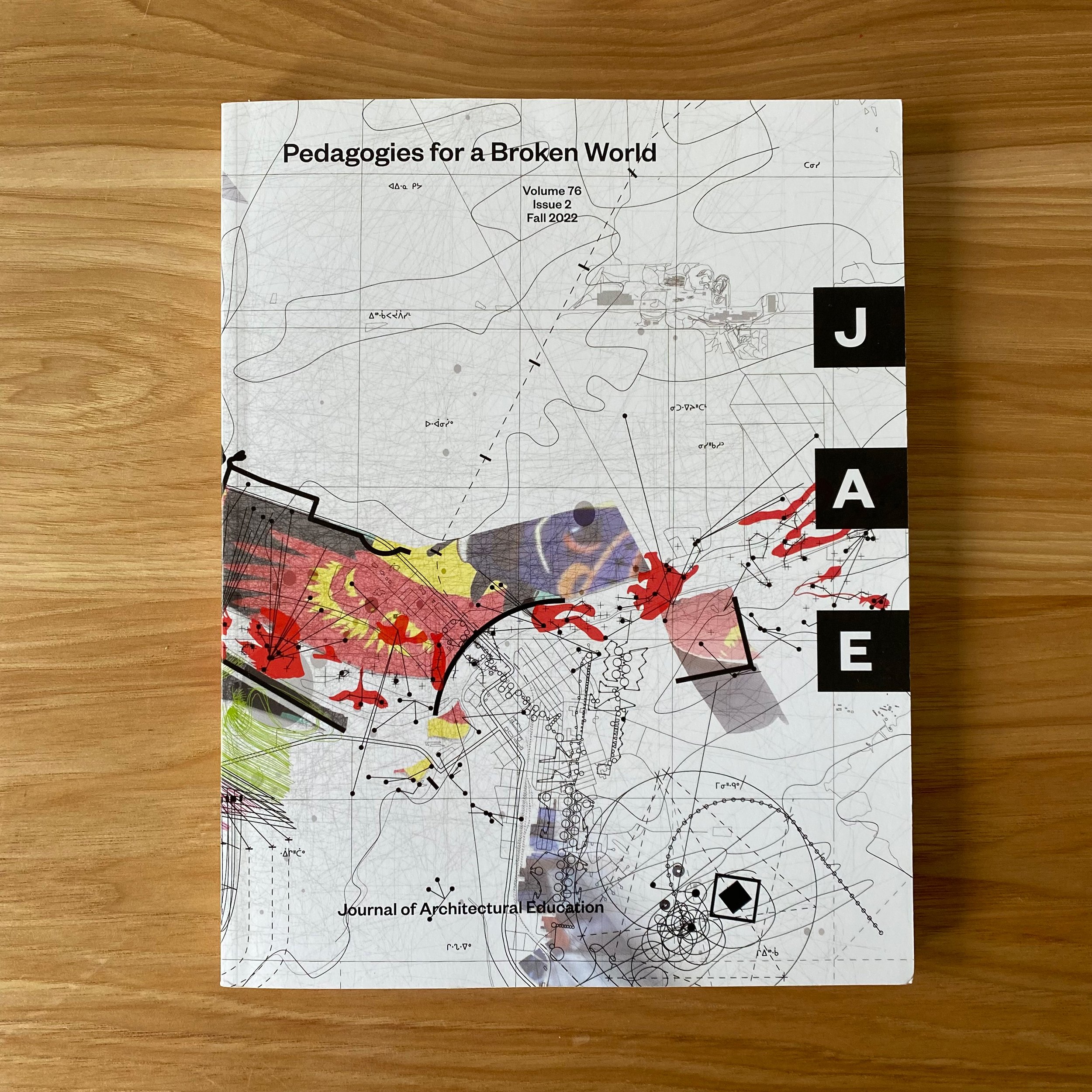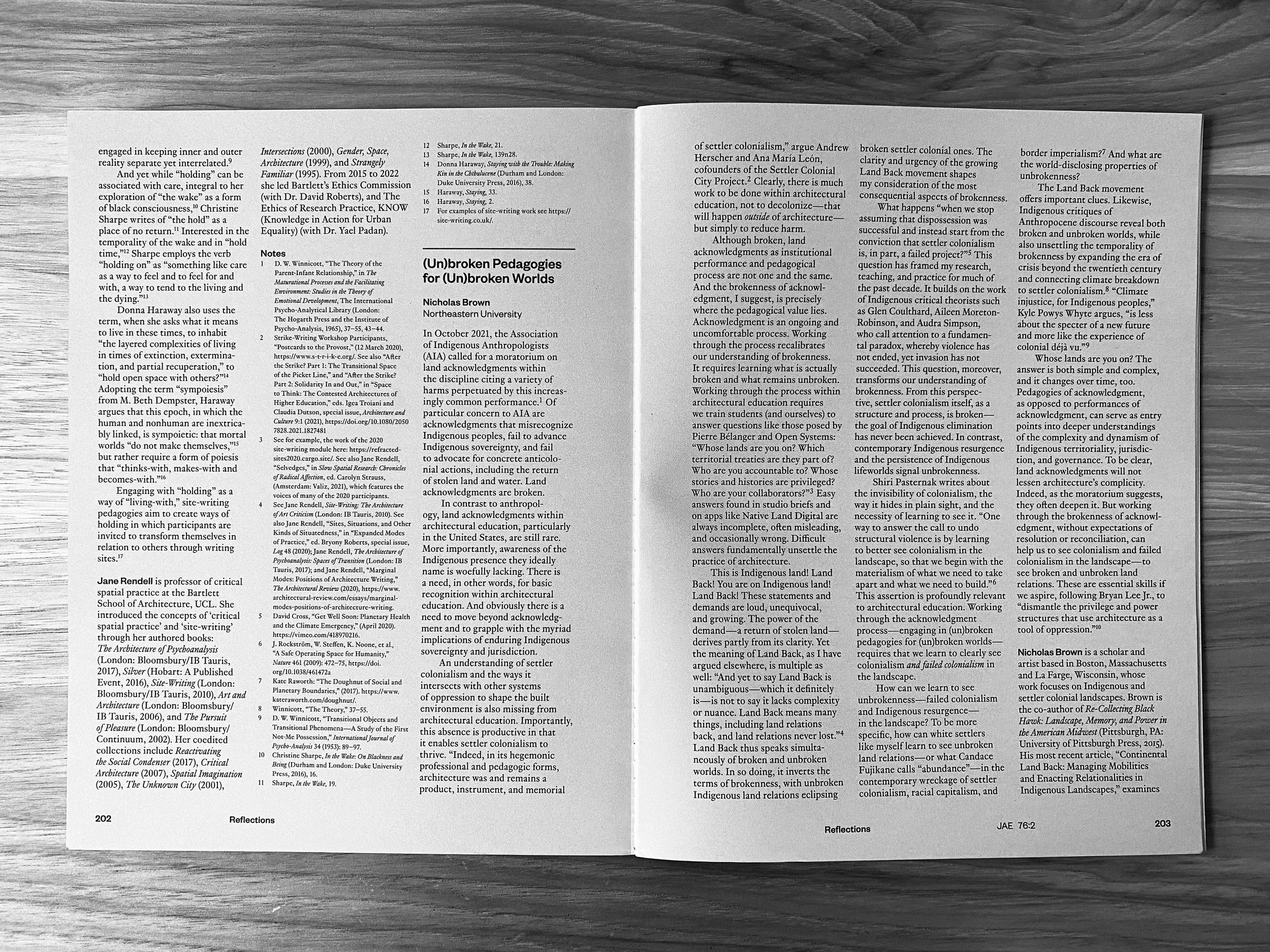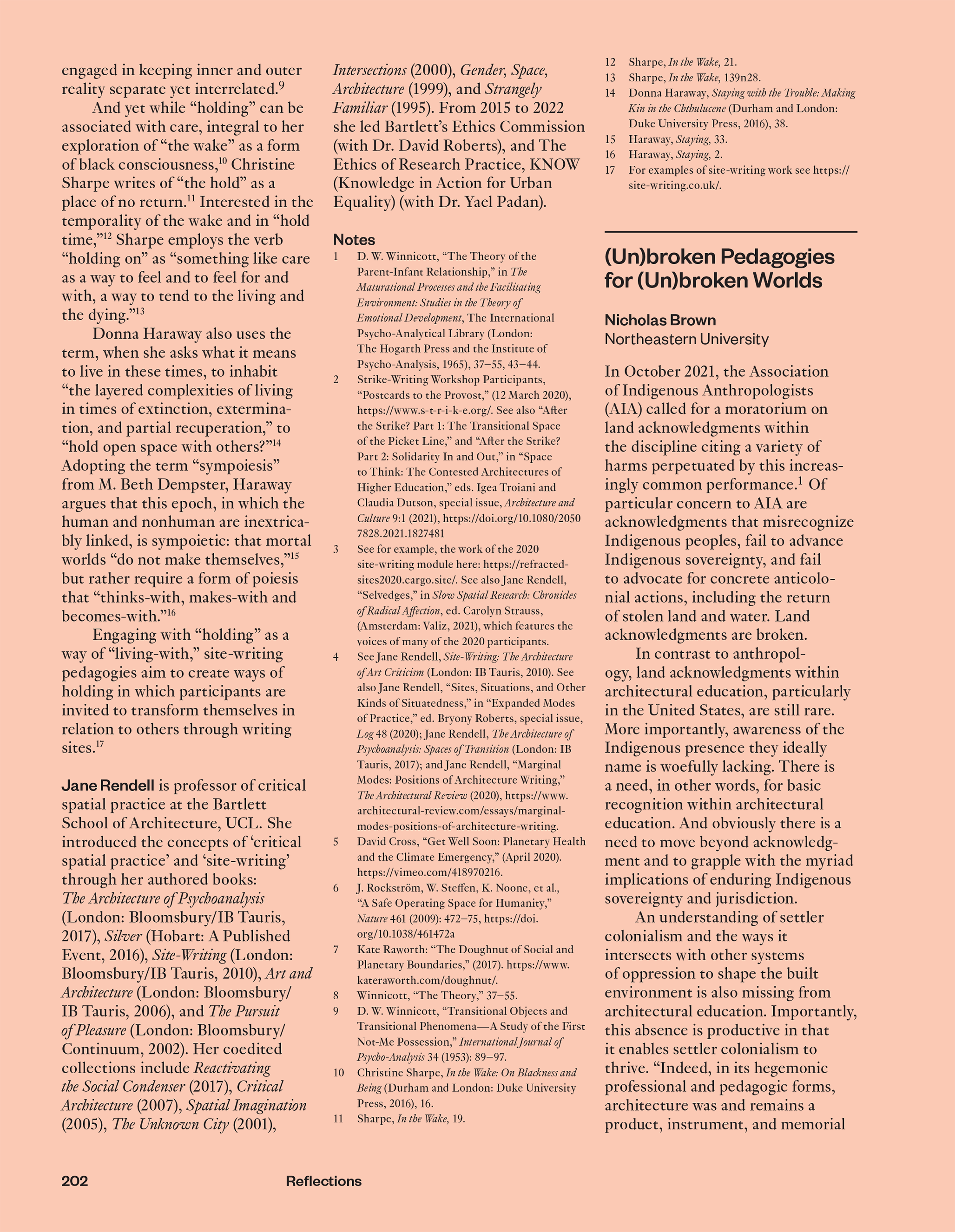(Un)broken Pedagogies for (Un)broken Worlds
Nicholas Brown, “(Un)broken Pedagogies for (Un)broken Worlds,” Journal of Architectural Education, 76:2 (2022), 202-203, DOI: 10.1080/10464883.2022.2097558.
In October 2021, the Association of Indigenous Anthropologists called for a moratorium on land acknowledgements within the discipline citing a variety of harms perpetuated by this increasingly common performance. Of particular concern to AIA are acknowledgements that misrecognize Indigenous peoples, fail to advance Indigenous sovereignty, and fail to advocate for concrete anti-colonial actions, including the return of stolen land and water. Land acknowledgements are broken.
In contrast to anthropology, land acknowledgements within architectural education, particularly in the US, are still rare. More importantly, awareness of the Indigenous presence they ideally name is woefully lacking. There is a need, in other words, for basic recognition within architectural education. And obviously there is a need to move beyond acknowledgement and to grapple with the myriad implications of enduring Indigenous sovereignty and jurisdiction.
An understanding of settler colonialism and the ways it intersects with other systems of oppression to shape the built environment is also missing from architectural education. Importantly, this absence is productive, enabling settler colonialism to thrive. “Indeed, in its hegemonic professional and pedagogic forms, architecture was and remains a product, instrument, and memorial of settler colonialism,” argue Andrew Herscher and Ana María León, co-founders of the Settler Colonial City Project (Herscher and León 2020). Clearly, there is much work to be done within architectural education, not to decolonize—that will happen outside of architecture—but simply to reduce harm.
Although broken, land acknowledgements as institutional performance and pedagogical process are not one and the same. And the brokenness of acknowledgement, I suggest, is precisely where the pedagogical value lies. Acknowledgement is an ongoing and uncomfortable process. Working through the process recalibrates our understanding of brokenness. It requires learning what is actually broken and what remains unbroken. Working through the process within architectural education requires we train students (and ourselves) to answer questions like those posed by Pierre Bélanger and Open Systems: “Whose lands are you on? Which territorial treaties are they part of? Who are you accountable to? Whose stories and histories are privileged? Who are your collaborators?” (Bélanger 2021). Easy answers found in studio briefs and on apps like Native Land Digital are always incomplete, often misleading, and occasionally wrong. Difficult answers fundamentally unsettle the practice of architecture.
[…]
Continue reading (Un)broken Pedagogies for (Un)broken Worlds


